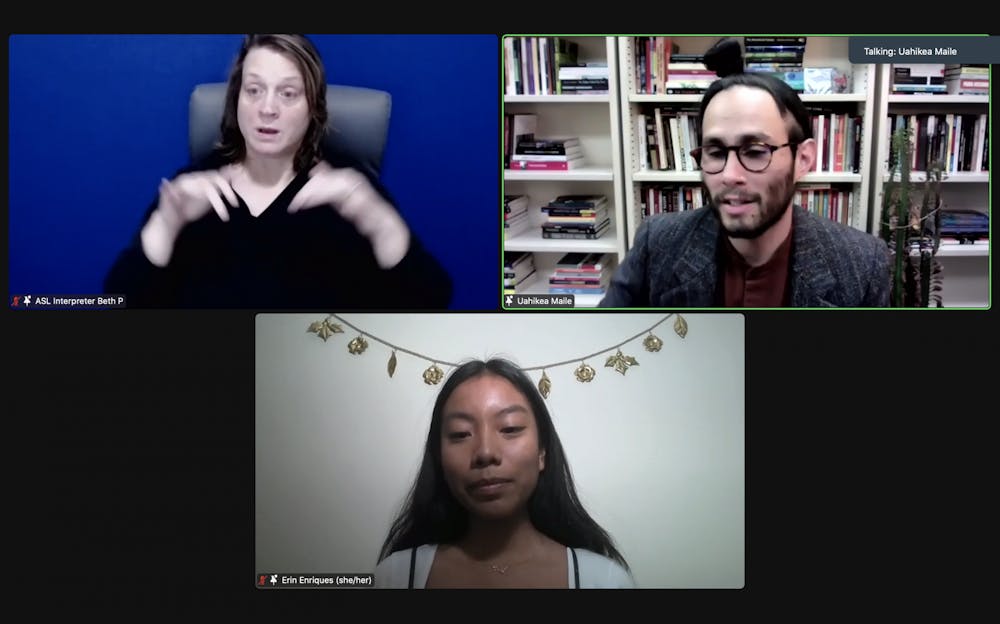Uahikea Maile, a Kanaka Maoli scholar and an assistant professor of Indigenous politics at the University of Toronto, spoke to American University and Georgetown University students during a webinar Thursday.
AU’s Caribbean Circle, Hawai'i Club, League of United Latin American Citizens, Student Advocates for Native communities, Students for Justice in Palestine and the Asian American Student Union organized the webinar, which is the first in AU’s 2022 Spring Semester Settler Colonialism Event Series.
AU junior Erin Enriques moderated the question and answer portion of the interview and Hawai'i Club members Stevie Marvin and Kawika Pegram introduced the speaker.
The event also featured a land acknowledgment for the Cedarville Band of Piscataway Conoy
During the webinar, Maile discussed the idea of “aloha āina,” meaning love of the land, and that who feeds, in the Hawaiian language.
“As an Indigenous orientation, I suggest further that aloha 'āina can also be understood as a geontology or ecological way of being in Hawai'i,” Maile said. “It is a deeply rooted structure in Kanaka Maoli subjectivity and revolutionary politics in the formation of Hawaiian indigeneity.”
Maile also talked about the role of “settler aloha 'āina,” a term which means someone without native ties to Hawai'i who is committed to understanding and protecting Hawaiian lands, its 'āina and the Indigenous Hawaiian people.
According to Maile, part of the responsibility of settler aloha 'āina is to support Indigenous peoples in a way that does not prevent them from actively challenging the occupying state and its police force.
During the question and answer period, Maile was asked if aloha 'āina has become a form of political capital for settler allies to claim.
“Absolutely,” Maile said. “I think that settler aloha 'āina certainly can, and indeed has in some ways, materially become political capital itself, as an idea … as a political ideology, perhaps for settler allies, settler accomplices, non-Kanaka Maoli Indigenous people of Hawai'i to claim [and] to aspire to.”
At the end of the webinar, Maile discussed the role non-Indigenous individuals have in advocating for Indigenous rights, saying it is “a role that is in reverence for the 'āina while at the same time acknowledging one’s simultaneously and positioned subjectivity and positionality.”
“How many of us came from other … lands and islands to Hawai'i islands?” Maile said. “Those are the kinds of dynamics too that I think are important, thinking about those roles between Indigenous and non-Indigenous peoples in terms of responsibility … to take up those movements.”
Correction: This article has been updated to reflect the proper spelling of aloha 'āina. This article has been updated to include information provided by AU Junior Stevie Marvin, a member of AU Hawai’i Club’s executive board. Pegram, who introduced the speaker, is a photographer for The Eagle and was not involved in the writing, reporting or editing of this story.





